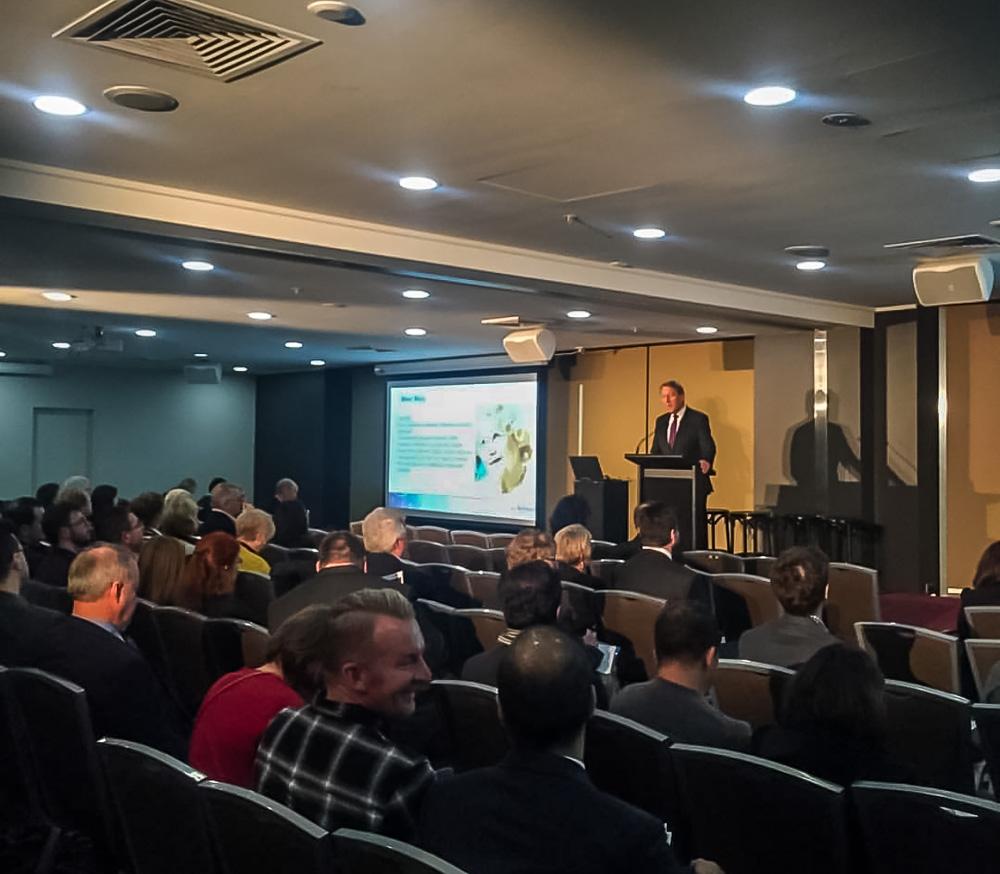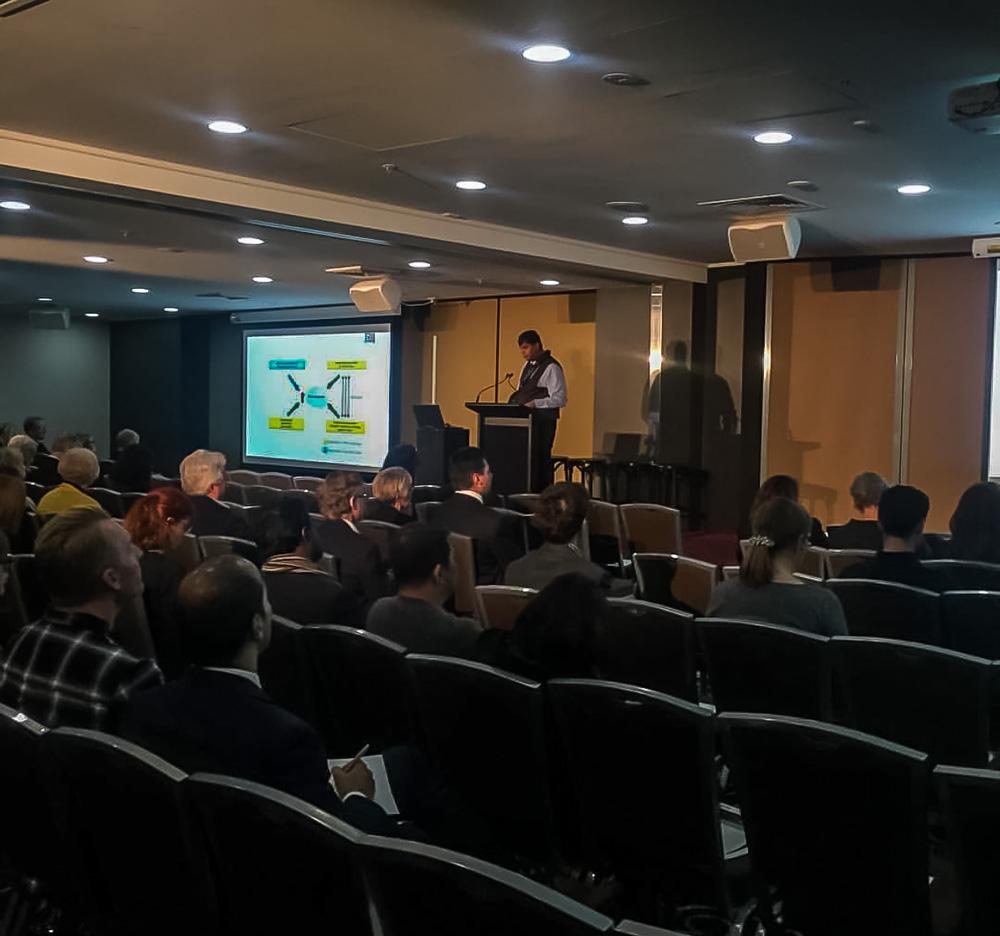Understanding Alzheimer’s Conference at Novotel Melbourne
The World Loves Melbourne (Pamela) was thrilled to be invited to a significant conference on Understanding Alzheimer's at the Novotel Melbourne. The conference co-incided with World Alzheimer’s Day.
Alzheimer’s disease is the most common type of dementia thought to account for 70% of all cases. In Australia more than 353,800 people are living with dementia of these 25,100 are considered to have Younger Onset Dementia (diagnosed under 65 years and as young as 30). By 2050 the overall figure is expected to rise to 900,000 people. Alzheimer’s disease is indeed a most challenging health concern of our time and tops the list of most feared diseases along with cancer. However much is happening in the field of research both in Australia and globally as presented by the speakers. Images below: Actinogenmed Instagram

Dr Bill Ketelbey presenting.
Professor Ralph Martins AO – Alzheimer’s and Ageing, Edith Cowan University & Research Director, McCusker Alzheimer’s Research Foundation.
Professor Martins spoke on aspects such as, the Mediterranean diet, recommended sleep, physical exercise and lowering our stress levels are essentials for good brain health. He cited a study on the effect of physical exercise markedly lowered beta-amyloid plaques in the brain (a hallmark of Alzheimer’s) and poor sleep patterns that can double the amount of amyloid. Latest research demonstrates that beta- amyloid deposits can now be detected in the retina of the eye. Professor Martins cited a trial being conducted in NSW using Curcumin which is a derivative of the spice Turmeric, which is known for its anti-oxidant and anti-inflammatory properties in relation to Alzheimer’s disease.

Professor Ralph Martins presenting.
Professor Colin Masters – Head of Neurodegenerative Division of The Florey Institute, & University of Melbourne.
Professor Masters presented on the Florey Institute’s Australian Imaging and Biomarker and Lifestyle (AIBL) study which is the most comprehensive study of its kind in the world. The AIBL study is now in its 10th year monitoring the way the human brain ages by collecting data from participants every 18 months. The people involved range from those with Alzheimer’s disease through to healthy individuals.
Professor Masters also shared on a drug Solanezumab (Eli Lilly & Co) and an antibody both being trialled and demonstrating great promise in reducing beta-amyloid plaques in the brain.
Dr Bill Ketelbey – CEO & Managing Director on Actinogen Medical Limited
It is a long road for a drug to reach approval and human consumption from its earliest developmental stages and can cost in the vicinity of $1.5 Billion and take 15 years.
Actinogen Medical is a clinical biotechnology company which is publicly listed (ASX) and has developed Xanamen, an innovative drug for Alzheimer’s disease that seeks to block the production of cortisol in the brain. Reduction of plasma cortisol levels may assist in tempering cognitive decline. (AIBL Research Group, 2016). According to Dr Ketelbey it has taken 13 years for Xanamen to reach this point of a 12 week clinical trial to take place in Australia, UK and USA. It heralds great promise.
With a 14 year interval since a new drug for Alzheimer’s has been released it is with immense anticipation and hope that a ground-breaking drug will be available in the very near future.
Anne Fairhall – Consumer Advocate, Alzheimer’s Australia Victoria
Anne shared aspects of her journey caring for her husband who was diagnosed in 1991 with Frontal Temporal Dementia. Her husband displayed mood swings and denial of the disease and later intense anxiety, depression and aggression. Associated with progression of the disease were loss and grief for her husband but also for Anne and the family. Stigma, embarrassment and lack of awareness of dementia in the community can still be quite apparent. With the progressive loss of her husband’s abilities Anne shared on the importance of carers learning both verbal and non-verbal communication techniques.
Anne’s husband has now been in care 5 years and is relatively settled and happy. Anne continues to passionately advocate for people impacted by dementia and how to understand and support people living with dementia, their carers and families.
